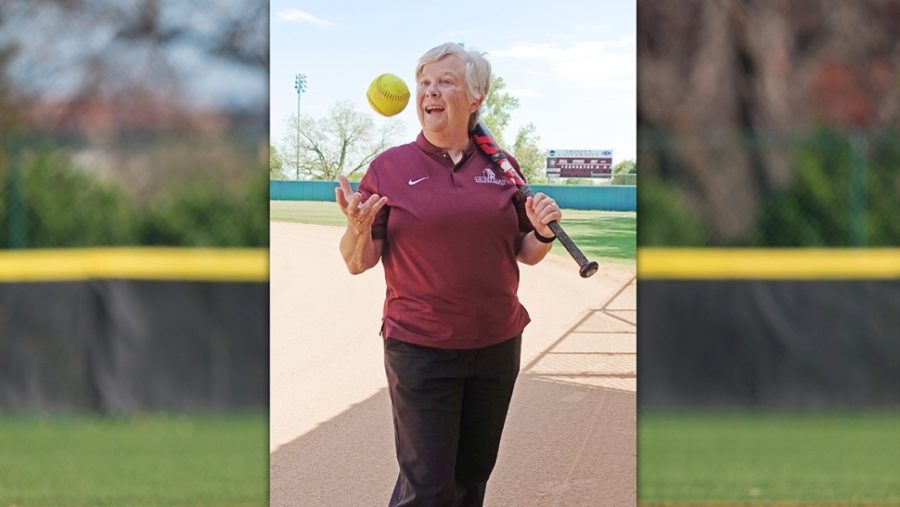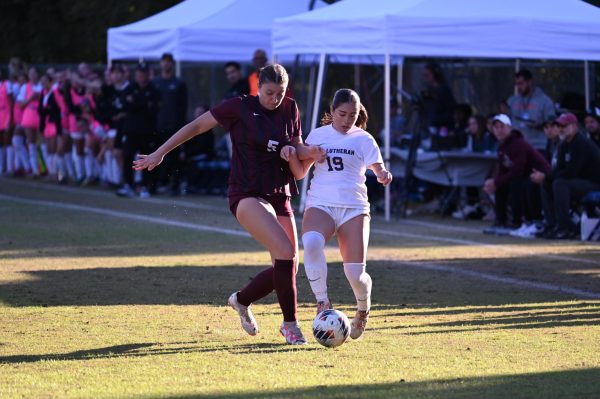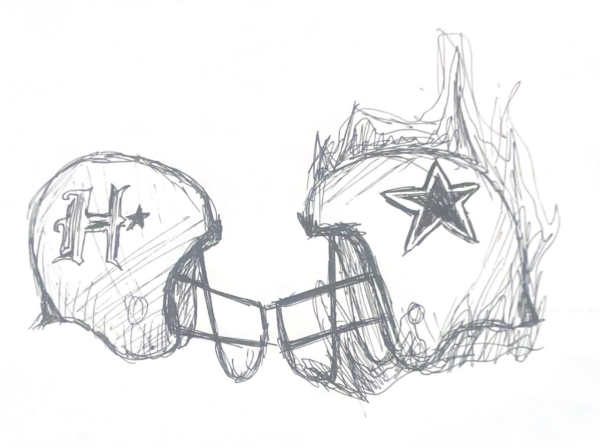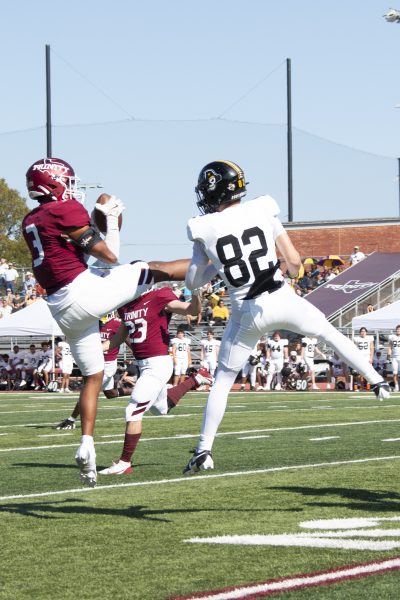Women athletes are finally in the headlines
Alumna’s book “From the Sidelines to the Headlines” and panel tell the story of Trinity and women in sports
Betsy Gerhardt Pasley didn’t set out to write a book when she teamed up with Doug Brackenridge, professor emeritus of religion, and Shirley Rushing Poteet, former physical education professor, in 2015 to start the Trinity University Women’s Intercollegiate Athletics (TUWIA) History Project. The project began with a 2014 inquiry from Peggy Kokernot, founder of the Trinity women’s track team, about the nearly nonexistent records regarding women’s teams at the time. As a former Trinity athlete and teammate of Kokernot, Pasley was eager to research the experiences of women athletes and coaches throughout Trinity’s history.
And yet, eight years later, Pasley is the author of “From the Sidelines to the Headlines: the Legacy of Women’s Sports at Trinity University,” which spans more than 150 years of Trinity’s history and is told through the lens of women in sports. With years of interviews and deep dives through the Trinity archives, Pasley said she was able to connect back to her roots as a sports reporter, a job she began at Trinity.
“I took the nexus of what [Doug Brackenridge] had done and then just started to decide what are the true storylines here? where are the breaks?” Pasley said. “And I really found myself falling back on my own reporter roots. I mean not just telling game stories, but [writing] the features and who these people are and what got them to that point. The stories of the coaches to me were so fascinating. And so it was kind of going back but instead of writing a newspaper article, I’m writing this book and it was a little overwhelming, but really, really fun.”
One of the most prominent narratives Pasley explored throughout the novel was the 1972 Title IX law that prohibited discrimination on the basis of sex in education programs and activities. Jody Conradt, Hall of Fame basketball coach, asserted in her foreword of the book, that although the law didn’t mention sports, it changed the trajectory of women in college sports forever. Pasley, as a Trinity student-athlete in the years following the law, said that although she saw potential, most of the women athletes at the time were focused more on the joy of playing their sports.
“Everybody was just so darn happy to be playing. They didn’t see the inequities. They didn’t realize what they didn’t have. And I think we all felt that way. … We just wanted to go out and practice softball and go play against St. Mary’s and we’d be happy,” Pasley said. “We really did have this feeling that we were on the cusp of something really great.”
The implications of Title IX on women’s athletics will be the focus of a panel event held on Sunday, March 5, from 3-4:30 p.m. in the Ruth Taylor Recital Hall by Trinity University Press, the publisher of Pasley’s “From the Sidelines to the Headlines”, Trinity’s Sport Management Program, and the Trinity University department of education. The panel will include Pasley, Jenny Carnes, president and CEO for San Antonio Sports, Mary Ullmann Japhet, board member of San Antonio Sports and Trinity alumna and Yanika Daniels, member of Trinity’s first national qualifying women’s basketball team from 1995.
With her position at San Antonio Sports as well as being a former All-American basketball player at the University of Incarnate Word, Carnes reflected on Title IX and the work that still needs to be done.
“When I think about Title IX and 50 years later, the first thing that comes to my mind is just how grateful and appreciative I am of the pioneers and those that led the fight all those years ago. … I’m just grateful that I grew up in an era where girls had more opportunities and if not for Title IX, that wouldn’t have been the case,” Carnes said. “I know that we’ve got to continue to have these difficult conversations and we’re going to continue to grow and evolve in women’s athletics.”
In “From Sidelines to Headlines,” Pasley chronicles the gratitude, frustration and optimism that coaches and administrators and players like Carnes felt during a time when women were prohibited from even exercising to the present day. Coming from a time when women athletes shared uniforms across sports, Pasley was able to research and reflect on the progress made in the realm of women’s athletics after she graduated.
“I cannot tell you how excited I am about [what Trinity women’s athletes] futures [will] look like because of Title IX and the decisions Trinity made,” Pasley said. “I could be resentful, but I’m more joyful.”

Hello, y'all! I'm Abby Power, and I am a sophomore news reporter from Kyle, Texas. I intend to major in Political Science, Spanish, and Global Latinx Studies....






